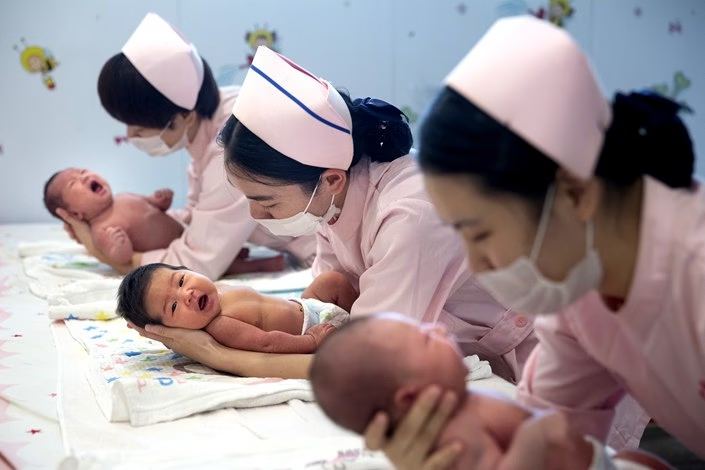BEIJING – The Chinese government has announced a major new plan to offer China childcare subsidies to parents across the country. In a significant move to address its declining population, Beijing will give families an annual payment of 3,600 yuan (about $500 USD) for every child under the age of three year.
The announcement was made by state media on Monday, confirming a nationwide policy that will start in 2025 but will be backdated to January 1, 2025. This is the government’s most direct financial step yet to encourage families to have more children and tackle what experts call a looming demographic crisis.
This new policy comes after China’s population has fallen for three years in a row, a trend that could have serious consequences for the world’s second-largest economy.
Addressing a National Challenge: The Demographic Crisis
For years, China has been facing a big problem with its population. The number of babies being born is falling, while the number of older people is rising quickly. This creates a huge challenge for the country’s future.
Key Facts About China’s Population Problem:
- Falling Births: In 2023, only 9.54 million babies were born in China. That’s half the number from 2016, the year the country ended its famous “one-child policy.”
- Shrinking Population: The country’s total population has now declined for three straight years.
- Future Projections: The United Nations predicts that China’s population could fall from 1.4 billion today to just 800 million by the year 2100.
Many young people in China say that the high cost of raising children and worries about their careers are major reasons why they are choosing not to have bigger families.
Details of the New Subsidy Program
The new plan for China childcare subsidies is designed to be simple and direct. The goal is to ease some of the financial pressure on young families.
- Who gets the money? Parents of any child under the age of three year. Unlike some local programs, this subsidy applies to the first, second, and third child equally.
- How much will they get? Each child will receive 3,600 yuan (about $500 USD) per year until they turn three.
- Is it taxed? No. State media outlet Xinhua confirmed the subsidies will be exempt from individual income tax.
While this is a big step, some experts believe it may not be enough on its own to solve the problem. Zichun Huang, a China economist at Capital Economics, told reporters that the amount is “too small to have a near-term impact on the birth rate.”
However, he also noted that “the policy does mark a major milestone” because it’s the first time the central government has given direct cash payments to households for this purpose.
What is China doing to increase its population?
This nationwide program for China childcare subsidies is a clear sign that the government is taking its population problem very seriously. While many local governments already offer their own incentives, this is the first unified policy for the entire country.
The government hopes that by reducing the financial burden of raising children, more couples will be encouraged to start or grow their families. This policy, combined with other efforts to improve parental leave and childcare services, is a key part of China’s long-term plan to secure its economic future.


